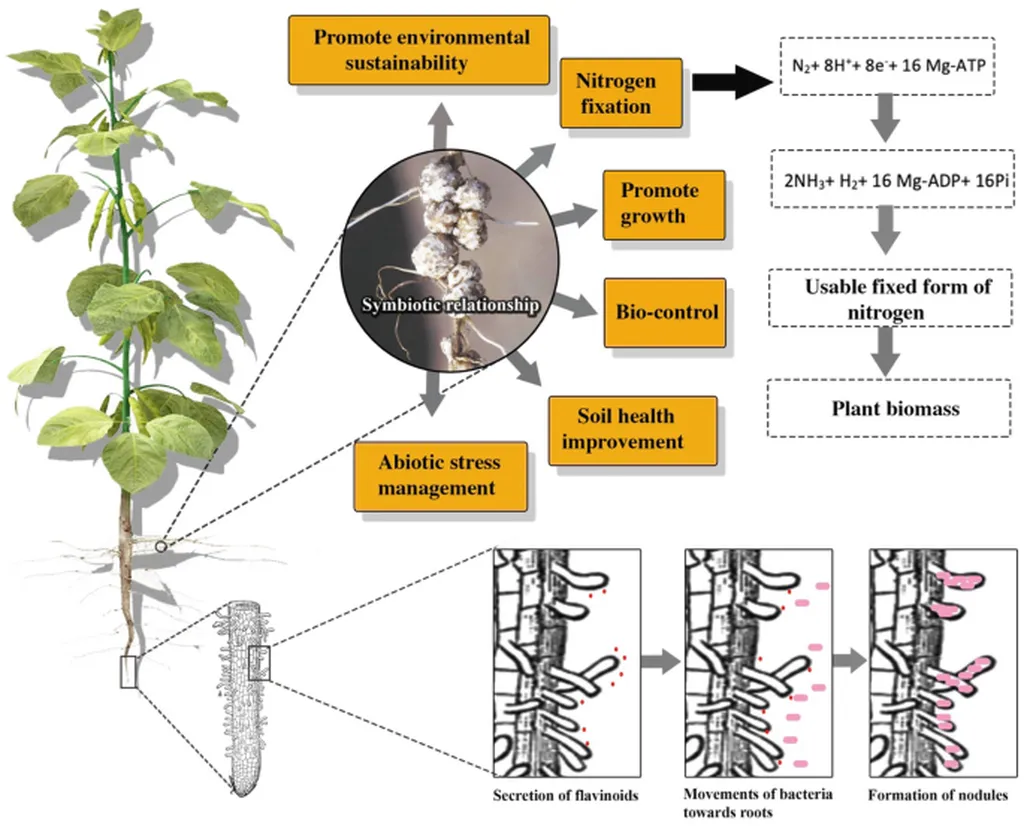In the quest for sustainable agriculture, farmers and researchers are increasingly turning to nitrogen-fixing bacteria (NFB) as a means to boost crop yields while reducing reliance on synthetic fertilizers. A recent meta-analysis published in *Cogent Food & Agriculture* sheds light on the efficacy of NFB inoculation, offering valuable insights that could reshape agricultural practices.
The study, led by Erick J. Lopez-Arredondo of the Graduate Program in Biological Sciences at UNAM in Mexico, analyzed 80 research papers to determine the factors influencing the effectiveness of NFB inoculation. The findings reveal a significant overall positive effect on crop yield, with an average increase of 1.263 times the standard deviation (Hedges’ g = 1.263, 95% CI: 1.159–1.367). However, the results also highlight substantial variability across different crop-bacterial combinations and inoculation methods.
One of the key takeaways from the study is the importance of crop-bacterial specificity. Different bacteria strains showed varying degrees of effectiveness on different crops. For instance, Azospirillum significantly boosted wheat and maize yields, while Rhizobium improved wheat yields, and Azotobacter showed a notable positive effect on chickpea. This underscores the need for tailored approaches in NFB inoculation.
“The effectiveness of nitrogen-fixing bacteria is not one-size-fits-all,” Lopez-Arredondo explained. “Our findings suggest that farmers and researchers need to consider the specific combination of crop and bacterial strain to maximize yields.”
The study also compared the effectiveness of soil inoculation versus seed inoculation. Soil inoculation demonstrated significantly greater positive effects than seed inoculation, particularly in field studies. In contrast, seed inoculation showed larger positive effects in microcosm studies compared to field trials. This discrepancy highlights the need for caution when translating microcosm results to real-world agricultural settings.
The commercial implications of these findings are substantial. For the agriculture sector, the adoption of NFB inoculation could lead to reduced fertilizer costs and increased crop productivity, contributing to more sustainable and profitable farming practices. However, the variability in effectiveness underscores the need for further research and development to optimize these techniques.
As the global push for sustainable agriculture intensifies, this meta-analysis provides a crucial roadmap for future developments. By understanding the nuances of crop-bacterial interactions and inoculation methods, farmers and researchers can harness the full potential of nitrogen-fixing bacteria to enhance crop productivity and reduce environmental impact.
In the words of Lopez-Arredondo, “This research is a stepping stone towards more efficient and sustainable agricultural practices. It’s not just about using nitrogen-fixing bacteria; it’s about using them wisely.”

